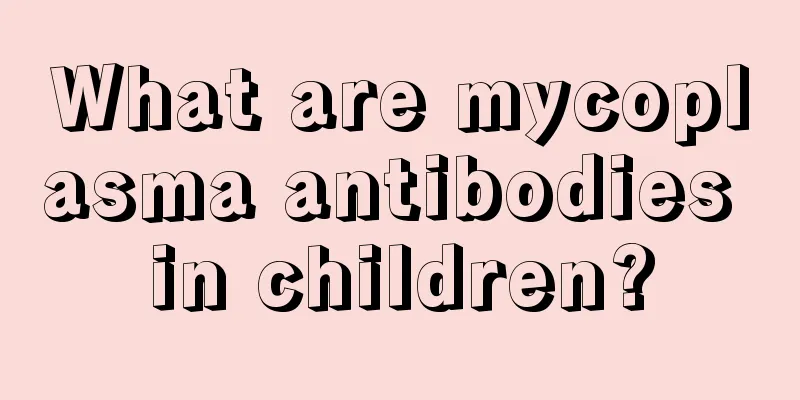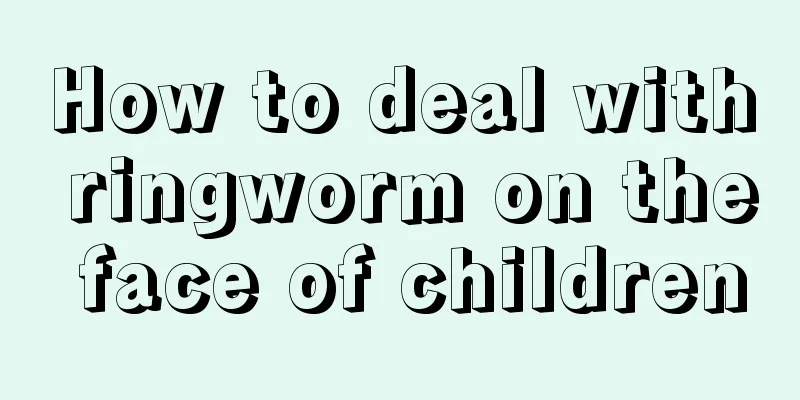How to deal with urticaria in children

|
Many patients with urticaria will definitely choose to seek treatment as soon as possible, but because they do not know how to treat it correctly, they often fall into misunderstandings and take on more health risks and side effects. Although urticaria itself is not contagious, the allergic constitution of urticaria will be passed on to the next generation: many parents have allergic constitutions, and their children are inherited after birth, making them prone to skin problems such as urticaria and eczema. Urticaria in children, commonly known as urticaria, is a common pediatric skin disease. About 15%-20% of babies have suffered from urticaria at least once. There are many causes of urticaria, which may be milk, eggs, breast milk, etc. What is urticaria in children Infantile urticaria, commonly known as urticaria, is a common allergic skin disease and also a common skin disease in children. When the disease occurs, there will be wheals (groups) of varying sizes on the skin. When you touch them, you will find that they feel hard and itchy. The surface antigens of the urticaria can be seen in the pores. A slight scratch on the skin may result in a red mark slightly higher than the skin surface. This is caused by the cells and fluid in the blood vessels leaking out of the blood vessels. The wheals of the affected child appear and disappear quickly, and leave no traces in childhood, but they are prone to recurrence, possibly several times a day. Urticaria in children can occur in any part of the body. When it involves the digestive tract, nausea, vomiting, abdominal pain, and diarrhea may occur. It can also cause symptoms such as edema, chest tightness, breathlessness, suffocation, and bronchial asthma. Parents should take their children to the hospital for treatment in time. What causes urticaria in children? 1. Internal factors. (1) The baby has a hereditary allergic constitution, or his or her vascular, neurological and immune functions are impaired. If allergens such as pollen, mold, and animal dander are eaten or inhaled, they can easily pass through the thin intestinal wall and enter the blood. Because babies have abundant subcutaneous capillaries, the symptoms will appear immediately on the skin. (2) Imperfect gastrointestinal system and weak immunity. 2. External factors. The most common external factors that cause baby urticaria are drugs and food: (1) Food: nuts, seafood, eggs, strawberries, mushrooms, milk, etc. (2) Drugs: penicillin, streptomycin, sulfonamides, aspirin, chloramphenicol, furazolidone, serum, vaccines, etc. (3) Inhalants: pollen, dust, smoke, etc. (4) Sources of infection: bacteria, viruses, fungi, parasites, etc. (5) Animal and plant irritants: bed bugs, mites, nettles, kudzu, etc. (6) Physical factors: excessive cold, excessive heat, cold wind, sunlight and stimulation from certain skin care products, etc. The cause of hives may vary depending on your baby's age. (1) Breastfeeding period: If the infant is mainly fed with breast milk, milk, and dairy products, the causes of urticaria are often related to the additives in milk and dairy products. (2) After adding complementary foods: As they grow older, infants and young children begin to add complementary foods. At this time, eggs, meat floss, fish floss, fruit juice, vegetables and fruits can all become causes of allergies. (3) Preschool and school-age children: Children at this age tend to like to eat snacks, and there are more types of snacks and regular meals, so the chance of food allergies increases. Foods such as nuts, fish, crabs, shrimps, peanuts, eggs, strawberries, apples, plums, citrus fruits, various cold drinks, beverages, chocolate, etc. may become the cause of allergies. (4) Children aged 2-7 years old lack self-control. When they go outdoors, in the wild, in the bushes, or under street lights in the evening, they are often bitten by insects or come into contact with pollen, dust, mites, and the fur of pets such as cats and dogs, all of which can easily become the cause of allergies. (5) Children in childhood and early childhood have low immunity and are prone to various infections. Therefore, diseases such as purulent tonsillitis, pharyngitis, enteritis, and upper respiratory tract infections can be triggers of urticaria at any time of the year. (6) Older children and adolescents are more likely to be allergic to drugs, especially penicillin, which may cause urticaria. Symptoms of urticaria in children About 15%-20% of babies have experienced urticaria, which is a very common skin symptom. The child's skin surface is swollen and red spots appear. The baby will feel itchy and keep scratching with his little hands. The rash usually lasts for a few minutes to a few hours before disappearing, but it can sometimes last for a few days. |
<<: Why does my child keep blinking?
>>: How to deal with blisters on children's burns
Recommend
What are the treatments for babies coughing when they wake up in the morning?
A baby's cough is a protective respiratory re...
What are the symptoms of overfeeding in babies?
The process of feeding a baby is very difficult a...
What is the baby lacking in oral ulcers
It is quite common for infants and young children...
How to cook eggs for babies
Families still need to take it seriously when add...
What to do if your newborn baby has yellow tears
Many newborn babies have tears in their eyes. We ...
At what age is it normal for children to change their teeth
Parents are very concerned about their children&#...
What causes cramps in children? These 6 reasons are the most common
When a child has symptoms of convulsions, parents...
Why does a young child have cold hands and feet when he has a fever?
Young children often have symptoms of cold and fe...
What should I do if I develop a fever after getting the meningococcal vaccine?
Parents must vaccinate their babies regularly. No...
How to deal with a child’s swollen eyes?
Many children like to jump around, which can easi...
How can junior high school students improve their memory?
Most families now have only one child, and parent...
What to do if the new baby has poor digestion
Since infants' gastrointestinal functions are...
How to treat chronic bronchitis in children?
If your child has suffered from pediatric bronchi...
What causes itchy head in children?
Itchy scalp in children is a problem that many pa...
What should I do if my baby has a runny nose?
It is a common phenomenon for babies to have a ru...









